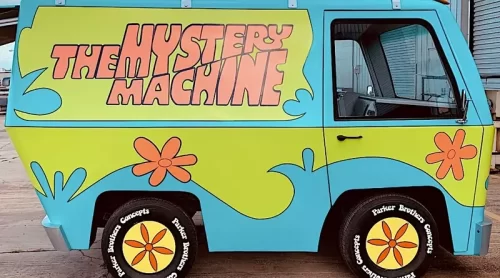
FAST FACTS Vol. 1, Issue 30 – Scooby-Doo’s Mystery Machine
Is it a Bedford CF, a Chevy, a Ford Econoline, or a Dodge? Opinions vary. “It’s Mean. It’s Green. It’s the Mystery Machine!” The incredible

In this article, we want to pay homage to the Ford Triton V8 engine.
Produced from 1997 to 2017. the Triton engine was offered in three sizes, 4.6 liter, 5.4 liter (Most common), and 6.8 liter, and was available in the following vehicles: Ford Explorer, Ford Expedition, Ford E-Series Vans, Ford F-Series Trucks, Ford Mustang, Ford Crown Victoria, Ford Fairlane G8, Ford LTD, Ford Falcon, Ford Futura, Ford Fairmont/Ghia, Lincoln Mark LT, Lincoln Town Car, and the Lincoln Navigator
The Ford Triton engine architecture was launched in 1997 as a SOHC (Single overhead cam) V-configuration, 8-cylinder, block, with a 2-valves per cylinder. Later it was expanded to a 3-valve design, and ultimately a DOHC (Dual overhead cam) design, with 4-valves per cylinder, was added.
Originally built to power large trucks, the Triton engine, in its 4-valve beef-up, landed in Ford’s sports cars, including the Ford Mustang Cobra R in 2000, and the Ford Shelby GT500 from 2007 to 2012. It also sneaked under the hoods of the Ford GT and the Ford Falcon sedans, dedicated to the Australian market.
One eyebrow-raising version of the engine was for the Ford GT, where an Eaton 2300 Lysholm screw-type supercharger, dual fuel injectors per cylinder, and oil squirters for the piston skirts were added. These features were never found on another Ford module engine at the time.
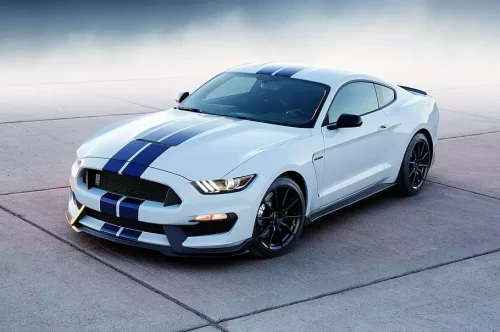
The original 1997 engine block was cast iron, and internal components included fracture-split powder metal connecting rods, and light-weight aluminum pistons. Featuring aluminum valve covers, the intake manifold was a composite material, and the engines were equipped with individual coil-on-plug electronic ignitions with sequential multi-port fuel injectors.
The Triton 3V (3-valve) added two intake valves and one huge exhaust valve per cylinder, among other enhancements.
The Ford Triton engine has been ranked on Ward’s Best Engines list in 1997, 1998, 2000, 2001, and 2002, and continues to be a reliable workhorse of Ford’s engine lineup, and a reason we take so much care in refurbishing them to the highest standards.
One final, and important point about Triton engines is that they do have their own issues. The most common problems with these engines are with the spark plugs & ignition coils, the fuel pump driver module, the timing chain, and the oil pan gasket leaking. They are also very to fix, which is one of the most compelling reasons to choose a Fraser remanufactured engine, as we directly address these common problems, as well as perform other upgrades and improvements, so the engines we deliver to our customers are an outstanding improvement over the original.
Displacement Sizes:
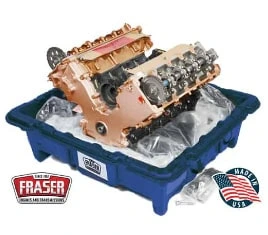 Block Material
Block Material
Aluminum (current)
Cast Iron (older)
Production years
1997-2017
Cylinder head material
Aluminum
Fuel type
Gasoline
Fuel system
Sequential multi-port fuel injection
Configuration
V
Number of cylinders
8
Valves per cylinder
2/3/4
Valvetrain layout
SOHC/DOHC
Bore, mm
90.2 mm (3.55 in)
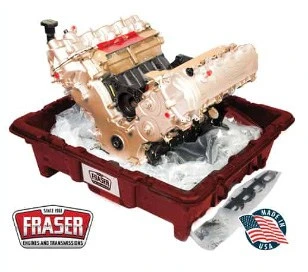
Stroke, mm
105.8 mm (4.17 in)
Displacement, cc
5,409 cc (330.1 cu in)
Type of internal combustion engine
Four-stroke, naturally aspirated
Compression Ratio
9.0:1 – SOHC 2-valve engine;
9.8:1 – SOHC 3-valve engine
Power, hp
230-260 hp (172-194 kW)/4,500 – 2-valve SOHC;
295-327 hp (220-244 kW)/5,000 – 3-valve SOHC
Torque, lb-ft
323-355 ft-lb (438-481 Nm)/3,250 – 2-valve SOHC;
347-369 ft-lb (470-500 Nm)/3,500 – 3-valve SOHC
Firing order
1-3-7-2-6-5-4-8
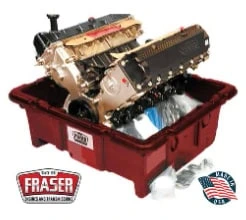
Engine oil weight
SAE 5W-20
Engine oil capacity, liter
1997-2003 – 5.7 l (6.0qts) with oil filter;
2004+ 6.6 l (7.0qts) with oil filter
Oil change interval, mile
5,000 (10,000 km)/6 months
Original Assembly Site:
Romeo, Michigan, USA
Windsor, Ontario, Canada
All original content, specifications, or images remain the intellectual property of their respective copyright owners, including Ford Motor Company.

Is it a Bedford CF, a Chevy, a Ford Econoline, or a Dodge? Opinions vary. “It’s Mean. It’s Green. It’s the Mystery Machine!” The incredible
HIGH PERFORMANCE ENGINE ORDER CHECKOUT Please note that completing this form does not finalize your order. This is the initial step in the process of
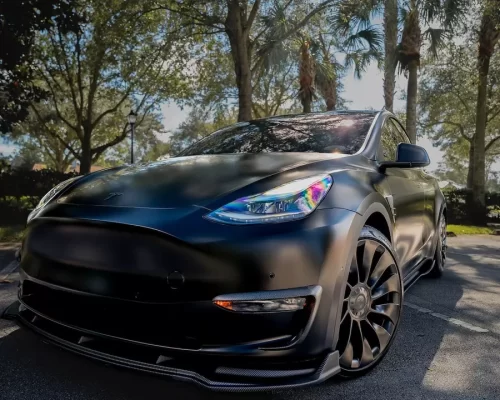
Issue 32 • Engine & Transmission Tips Get pro results turning your wheels into the super popular matte black look! You’ve got what were once
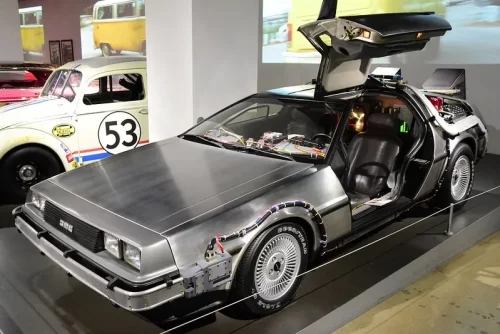
The 88-mile-per-hour stainless-steel hero of the Back To The Future movies How a movie franchise single-handedly etched DeLorean into the history book of cool cars

Amity Island Police Chief Brody’s 1975 Chevy Blazer The topless Blazer was cool as heck on a hot Summer beach! While the blockbuster movie JAWS

1968 Ford Mustang GT ENGINE SPECS for the “Bullitt” Car:1968 Ford Mustang GT6.4 Liter RB V8 EngineBorg-Warner T-10 Heavy-Duty TransmissionEstimated Brake-Horsepower Rating of 320 The